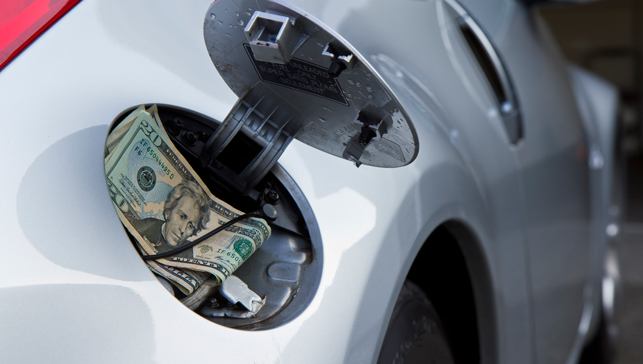Gov. Jerry Brown is inviting “the whole world” to a climate summit in San Francisco next year. Evidently Sacramento has solved the state’s housing crisis, defused the public-employee pension bomb, eradicated poverty, overhauled the creaky tax regime and taken care of all of California’s other problems and can now move on to symbolic nonsense.
While addressing via video a “global citizen festival” during the G20 Summit in Hamburg, Germany, Brown declared that “it’s up to you and it’s up to me and tens of millions of other people to get it together to roll back the forces of carbonization and . . . combat the existential threat of climate change.” The governor’s virtue was thusly signaled.
After Donald Trump was elected, Brown made it clear that California was not going to accept the new president’s climate policies, which in his view don’t regard human-based carbon dioxide emissions to be an “existential threat.” Brown declared that “California is not turning back. Not now, not ever.”
Alone, there is little California can do to impact Earth’s climate. It has the sixth-largest economy in the world, yet is a bit player on the climate stage. Here’s why: If every man-made activity that emitted CO2 was immediately shut down across the state, it would have zero effect on global temperatures. Not now, not ever. That’s because, according to the California Energy Commission, California’s human greenhouse gas emissions are only 1 percent of the world’s total.
But what if other nations followed California’s ostensible commitment to the Paris climate agreement that the Trump administration is quitting? Again, there would still be little impact. By many environmentalists’ own admission at the time the Paris accord was adopted by United Nations members, the agreement is impotent. James Hansen, the researcher who largely began the global warming hysterics three decades ago, said the Paris deal was “a fraud really, a fake.”
“It’s just worthless words. There is no action, just promises.”
Friends of the Earth called it “a sham” that is a “a very bad deal” which “will fail to deliver.”
Many other alarmists were equally skeptical. They knew the agreement would have no practical impact, that it was merely symbolic.
But despite its obvious flaws, Brown attacked Trump’s intention to withdraw from the deal, saying the president “has absolutely chosen the wrong course.”
“He’s wrong on the facts. America’s economy is boosted by following the Paris agreement,” Brown said in a statement issued June 1. “He’s wrong on the science. Totally wrong. California will resist this misguided and insane course of action. Trump is AWOL but California is on the field, ready for battle.”
Rather than obsessing over affairs he can’t control, and attempting to build an international coalition, a job constitutionally reserved for the president not a governor, Brown would better serve this state by tackling:
The public-employee pension problem: Pacific Research Institute fellow Wayne Winegarden has found that between $300 billion and $600 billion in state and local pension obligations have no funding. Brown has nothing to lose politically by demanding an overhaul of this failing system.
The housing crisis: PRI’s recent issue brief Unaffordable found that the severe shortage of homes in the state, caused by public policies that strip the profit motive developers need to build, has inflated housing prices to unaffordable levels for many. California Association of Realtors CEO Joel Singer says that only about one-third of Californians can afford to buy a median-price home when five years ago more than half could. Fixing this could be Brown’s legacy rather than the foolish high-speed rail.
The coming budget deficit: The nonpartisan Legislative Analyst’s Office estimated in May that budget deficits will return to the state as soon as the 2019-20 budget year. Instead of planning for a useless climate carnival, he should be finding places to makes cuts in the next budget, his final as governor, so it will balance.
The miserable business climate: Chief Executive Magazine has ranked California as the worst state for business for six straight years. Things are so bad even a modest effort would bring great improvement.
Poverty: At 20.6 percent, according to the Census Bureau’s Supplemental Poverty Measure, California has the highest poverty rate in the country. Yet, the state is taking little substantive efforts to transform people’s lives and get them on track to a self-sufficient future.
The tax regime: California State Controller Betty T. Yee says the state’s tax system was “designed during the Great Depression . . . is outdated, unfair, and unreliable.” A fully reformed system would cause an economic bang.
So where is the political leadership for solving these problems? Unfortunately for California, it’s priorities are desperately confused.

